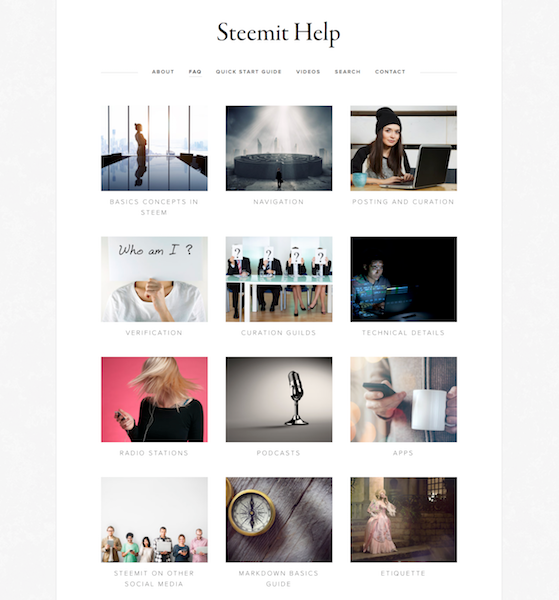Free Money For Someone Else's Work - The Scandal of Journals Behind Paywalls

Introduction
I'm going to try to keep this short. Apologies if it is a bit of a rant but frankly I think the lack of open access to scientific papers is a scandal.
Currently I'm working on getting back to work and have been busy on working to update my medical knowledge.
This presents me with a quandary. If I want to get the latest medical research on a particular topic I have to either:
- Have academic access - which requires a medical post (which I currently don't have since I am in the process of getting back to medical work - a long process).
OR - Pay exorbitant fees to jump over the pay wall - some journals charge over $35 dollars for a single paper - money which I don't have (because I am not working).
I have previously posted about about the "Research Racket" as I call it where I was talking about the Aaron Swartz case.
This has really brought home to me once again how closed our scientific process is and how desperately we need open initiatives.
Paywalls Kill Progress and Limit Innovation

For the scientific method to work correctly people need access to previous findings and the previous literature.
This is for two main reasons:
- To test/replicate previous research where necessary - you need to know exactly what was done.
- To find a starting point for completely novel research again you need to know what has been done before and the current state of the field.
The Knowledge Divide

Every year we hear the media proclaiming how scientifically ignorant the regular man or woman on the street is.
The thing is if they wanted to to actually start getting more informed they would quickly hit the paywall issue.
The latest research is only available if you have university affiliation or have very deep pockets.
Tough luck if you are out of University or not currently working. Tough luck too if you are just an ordinary member of the public with an interest in science.
This only serves to create a knowledge divide and it is all the more scandalous that a large amount of that research was funded by us through our taxes.
Why Most Big Journals Are a Racket

For more in depth information please see my old article (including the references) but here is a quick summary:
- Much of the research they publish is government/publicly funded.
- The journals themselves don't contribute to the cost of the research.
- The journals themselves don't even pay for the peer review or writing the papers themselves. Those things are all done by others at no charge to the publisher.
- They hold copyright to a product which they did not fund, produce or even review themselves.
- There is no real competition between journal publishers as the vast majority of them are owned by just 3 companies.
- Essentially they are holding the whole of science to ransom for the sake of the "prestige" that comes from their names.
- They have ratcheted up prices - between 1984 and 2002 the average cost increased by 600% and even the most prestigious Universities like Harvard are struggling to cope.
- Every University must subscribe to Journals independently - there is no set price or rate and they are sold as bundles (like cable TV).
- At least Universities have some power in this relationship and can negotiate. As a regular person, I or anyone else who wants to read the latest research have to pay ridiculous fees or break the law.
What We Need is Open Access

There are a number of initiatives to promote open access to research.
The internet gives us a means to publish for very little cost and take out the profiteering middleman in the form of the established journal publishers.
Unfortunately there are two big obstacles in the way of this.
The first is the culture within the scientific establishment - people don't like change and there is the psychological inertia which means that people are so entrenched in the current system they can't see that there is any other way.
The second is the vast amount of money and lobbying power that the journal publishers have. They don't want to lose a multi-billion dollar cash cow which essentially gives them free money for doing very little.
Conclusions

I wanted to keep this short - like I said if you want more detail I did a more in depth breakdown of the issues in my old post.
There should be no "paywalls" in knowledge. If you are doing true scientific research then part of that should be openness and dissemination of your findings.
What we have today is "spun" PR from research being touted in the news with no means of checking the claims which are being made.
As a result it is not surprising that people are misinformed about science. What they are getting is only the "Hollywood" version included in a press release.
In my recent studies the severity of the problem has become even more stark to me.
I believe if we could get rid of the old journals scientific advancement could potentially be accelerated.
What do you think? Please have your say. I would be particularly interested to hear of cases where people have required information for educational or research purposes and have had trouble getting access to it.
I'm sure I can't be the only one.
References:
- Akhtar, Arif. 2016. “The War on Open Science: Scientific Journals and the Research Racket.” Steemit. September 8. https://steemit.com/science/@thecryptofiend/the-war-on-open-science-scientific-journals-and-the-research-racket.
- Wikipedia contributors. 2016. “Open Access.” Wikipedia, The Free Encyclopedia. December 30. https://en.wikipedia.org/w/index.php?title=Open_access&oldid=757388515.
- Taylor, Mike. 2013. “Hiding Your Research behind a Paywall Is Immoral.” The Guardian, January 17. http://www.theguardian.com/science/blog/2013/jan/17/open-access-publishing-science-paywall-immoral.
- Mayyasi, Alex. 2017. “Why Is Science Behind a Paywall?” Gizmodo. Accessed January 11. http://gizmodo.com/why-is-science-behind-a-paywall-504647165.
- Merkley, Ryan. 2016. “You Pay to Read Research You Fund. That’s Ludicrous.” Wired, April 18. https://www.wired.com/2016/04/stealing-publicly-funded-research-isnt-stealing/.
Thank you for reading.

Before you go have you filled in the Coinbase form to list STEEM? It only takes a few seconds. THIS POST shows you how.
If you like my work please follow me and check out my blog - @thecryptofiend
All uncredited photos are taken from my personal Thinkstock Photography account. More information can be provided on request.

You should have a look at the project of one of our witnesses @pharesim. And you might contact him as he and @chainreaction are looking out for support.
https://pevo.science
https://steemit.com/pevo/@pharesim/pevo-after-steemfest
And here are some relevant links I have found
http://journal.frontiersin.org/article/10.3389/fncom.2012.00094/full
https://www.researchgate.net/publication/306107836_Blockchain_for_science_and_knowledge_creation_-_A_technical_fix_to_the_reproducibility_crisis
Thanks yes I am aware of Pevo - it is in my old article. Hopefully projects like Pevo are the future:)
I couldn't agree more. I think that the internet has the power to make scientific research accelerate at an unprecedented rate if it were used toward initiatives like making scientific articles available to to very taxpayers who fund the research. This is why I've been posting my original research on Steemit... I'm trying to feel out alternative methods of funding and publishing research that bypasses the traditional venues since they are overpriced (and thus not accessible to the average citizen) and don't contribute to the research itself (i.e., funding, neither before nor after as authors never receive royalties or payment of any sort).
Of course on the internets there will have to be a vetting process or peer review process that ensures quality content. It's not there yet but a practical solution for that, too, must be right around the corner.
the blockchain offers the perfect environment for peer review
that way when someone claims that their research model didnt work because all the global warming dissappeared into the ocean, we can laugh at them for not including that in their methodology.
sorry buddy,you don't get to change your story b/c your hypothesis failed
Well yes, and the blockchain has real potential to track original content and ensure academic honesty as well. For instance, researchers are sometimes (often?) worried about their work or ideas being stolen (which is another whole discussion in itself, re: sharing). Referring to my Steemit posts, my peers have asked me "what if someone steals your ideas." Well, that can happen anyway in print but at least by putting it out there on the blockchain, under an immutable date and time the origin of the information is always chronologically accurate as is its authorship.
Thanks for commenting. I think one potential means of peer review is to use the same people that do peer review for the "prestigious" journals but it is a chicken and egg situation. The journals get the best peer reviewers for free because of their prestige. Therefore they get more prestige. To get those same people on online open journals will require the same prestige but that won't happen without good peer review.
But if that scholarly information is accessible to everyone, what would happen to the ever elusive academic elitism?
Consider all your angles, @thecryptofiend! LOL 😜
not need academics?!?!?! thats almost as bad as not needing journalists!!! THE HORROR ;)
Lol exactly:)
If someone's work is privately funded, I have no issue with it being behind a paywall, but I do think that publicly funded research should be open.
From a more practical and immediate perspective, you might check to see if you can get alumni access through the library of the school where you graduated. I'm told that alumni do have access to paywalled journals at the school where I'm about to graduate, although I haven't seen it first-hand yet.
I'm pretty sure it expires once we leave but I will ask around. Thanks for the idea:)
Ge the DOI, and put it in here:
http://sci-hub.bz/
Someone may allegedly have to do that at some point:)
I get regular academic articles in psychology emailed to me from Academia.edu - Don't know if they do the same for the medical field
Not sure will check them out. Thanks:)
This is why I support journals like Plos One which isnt all that expensive to publish in, and is completely open access. In addition to the open access, Plos One publications are Creative Commons licensed, so that if you want to use a figure from one of my papers published there, you can for any purpose, even commercial.
Yes they are a great example. I've been reading a lot of their papers lately!
You didn't mention the other half of this evil equation.
These handful of journals can make or break your academic career. If for any reason they do not like you, you will never get published.
Talk about the real gate keepers.
There was one study that was published by a journal about repeating Monsanto's tests for cancer and extending the duration. The results were not good. Monsanto's answer was to basically buy the journal and put their own person as editor. The journal then retracted the study.
That all of this data and information is, generally or specifically, paid for by the public, the withholding of it is crime against the people. But, we have seen this control of information in all fields. Science is just the worst.
They invented the bloody internet, why can't they use it?
I'm sure it happens all the time we just don't see it.
They i.e. the journal publishers don't want to lose the income.
What a racket. But I am not surprised.
As a #fluoride activist among many other things with policy work, I saw a link come up in my government's official website here and a study done in the police state of #Canada here.
...something did not sit right with me so I spent literally 10 mins cross referencing some links and names and research and found the FEDERAL GOV'T of #Canadastan paid off this group, to whitewash the facts to the public knowing fluoride is a neurotoxin - to have them publish it saying that it is safe.
LOL
Not surprising, but I had not thought of that night in awhile.
Related I guess.
#Follow the Money.
Yes I don't know enough about fluoridation of water but we don't have it here luckily. We already have enough fluoride in our toothpaste we don't need it anywhere else! I had a friend who was a doctor from India where they had excessive (natural) fluoride in their water and he had dental fluorosis.
I just find it disturbing that governments PAY people to write whitepapers to bury the truth and obfuscate the FACTS and bury it all - we know nearly nobody will pick up on this stuff and do the research.
If you ever get bored LOL - just google my name and fluoride and you can see stuff that someone you know has done with the issue.
I've worked on lots of issues, this is just one of them. One of the videos out is in multiple places now - of me front row in a public lecture with Dr. Paul Connett of the FAN -- Fluoride Action Network
... he's one of the world's foremost authorities on the subject and nobody wants to debate him LOL. That website and his book lay out everything simply and effectively.
I took a car full of activists from my city and worked with the Fluoride Free Toronto group a bit and I shot this video to be logged as a public resource, that is why I took my camera man and editor with me that day.
I think fluoride is just one of the issues. Just think of all the compounds that modern manufacturing creates and nobody has every even investigated! It is too scary to think about what they are doing. May well be the reason for declining fertility, metabolic diseases and God knows what!
You are spot on.
I am super aware of all the crap in the water as you are saying. You nailed it big time there. I hope some people read that comment by you.
I remember watching the Aaron Schwartz documentary and it was fucking heart breaking.
I'm sure I recall some youngster using the information Schwartz leaked to create some sort of medical breakthrough for pancreatic cancer, or something of the likes. If all this information was free, how many other breakthroughs in every field do you think there would be?
Perhaps that's the point though..
I don't know where these fuckers get the gall to presume that they have the right to profit from work that they did not even produce.
Information should be part of the public library, free for everyone to study so we can progress as a species.
This reminds me of the Vatican library also. A 26 mile long library full of Ancient books and untold wisdom, yet to the average man you have no chance of exploring it, or learning from the lessons contained in there.
It truly is sickening, yet it is hardly surprising. It's no different with knowledge than it is with food, water, money or anything else that we need to improve the quality of our lives in today's society.
Forgive me. Started having a little rant of my own there. What I meant to say was--
Great piece. This is a very important matter that needs a lot more attention.
Thanks. I think your rant is well warranted:)